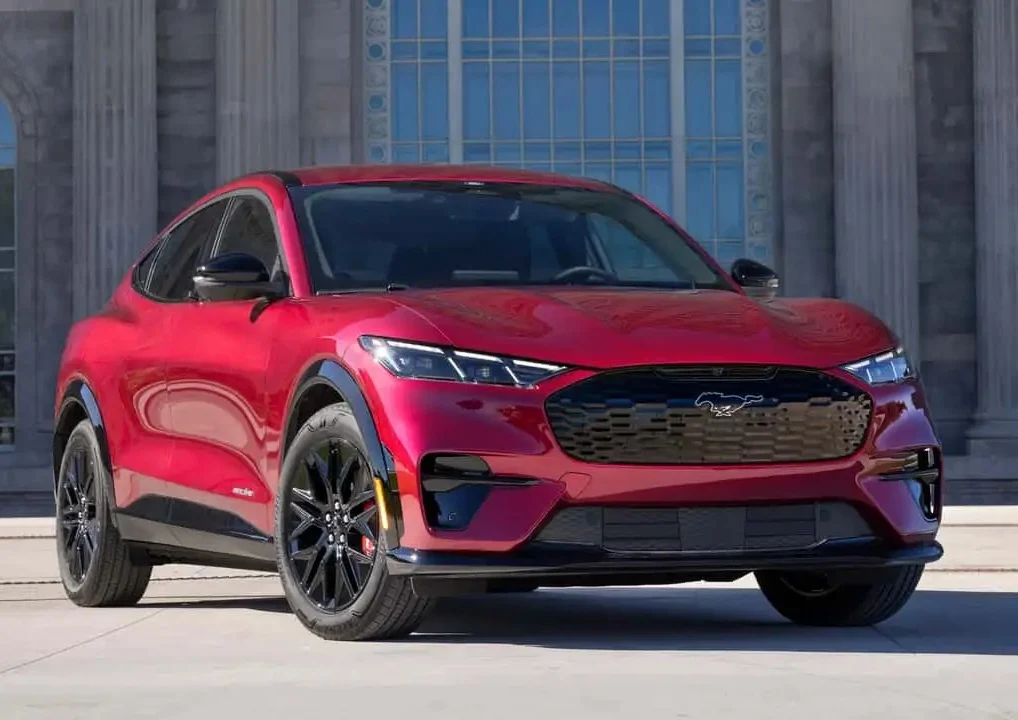Key Takeaways
1. Ford is raising prices on the Mustang Mach-e SUV by $2,000 due to increased tariffs on models made in Mexico.
2. The price increases will also affect the hybrid Maverick pickup truck and the Bronco Sport SUV, which are also manufactured in Mexico.
3. Ford plans to absorb some tariff costs instead of passing all of them onto customers, with new prices applying to vehicles assembled after May 2.
4. Ford is the first major automaker to raise prices in response to import tariffs, which could cost the company $2.5 billion by 2025.
5. Ford has a lower exposure to import tariffs compared to competitors, with nearly 80% of its U.S. sales produced domestically.
American drivers who have delayed purchasing the Ford Mustang Mach-e SUV may find themselves facing higher prices. The automaker is applying additional fees to the models it brings in from Mexico to adjust for the tariff increases that President Donald Trump has put into place.
Price Increases Announced
Ford has already informed its dealers about the price increases. According to Reuters, the Mustang Mach-e will see an increase of $2,000. Other models impacted include the hybrid Maverick pickup truck and the Bronco Sport SUV, both of which are manufactured in Mexico as well.
Company’s Response to Tariffs
Despite the price hikes, a Ford representative stated that the company would cover some of the tariff costs rather than shifting the entire burden onto customers. The revised prices will apply to vehicles assembled after May 2.
Industry Context
Ford is the first established carmaker to implement price increases due to the elevated import tariffs. Recently, they disclosed that the ongoing trade conflict could cost the company around $2.5 billion by 2025. However, Ford aims to reduce that impact by up to $1 billion. Meanwhile, local competitor General Motors might face losses ranging from $4 billion to $5 billion.
Ford has one of the lowest exposures to import tariffs in the American auto industry. It has a significant local production capacity, with nearly 80% of its U.S. sales being manufactured domestically. In contrast, companies like Volkswagen and Hyundai, which import over 60% of their sales, are more vulnerable in the second-largest auto market.
Source:
Link


Leave a Reply